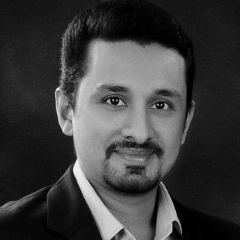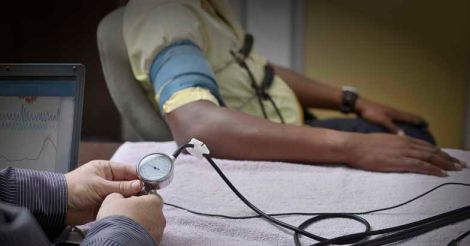Lie detector tests have long been a feature of cop movies, detective fiction and more recently, prime-time news hours on TV. But questions have been raised about the authenticity of polygraph tests when it comes to the criminal justice system.
Usage
The test measures the heart rate, skin conductivity and autonomic arousal of an accused to verify whether he is lying or not. A polygraph examiner asks a series of well-prepared questions to the accused and the answers are supposed to give a differentiation between the subject's deceptive and nondeceptive self.
 The test measures the heart rate, skin conductivity and autonomic arousal of an accused to verify whether he is lying or not.
Photo: Getty Images
The test measures the heart rate, skin conductivity and autonomic arousal of an accused to verify whether he is lying or not.
Photo: Getty ImagesWhen the test begins, an examiner gives a set of questions, which are intended to gain a basic information about the accused. These can be used to develop the questionnaire. A few stimulation tests are also done and the subject will be asked to deliberately lie in between so that the interrogator can verify the genuineness of his answers.
Criticism
During the first-level stimulation test and the later interrogation, just like the assumption that the guilty would become anxious, the innocent people too may get stressed and nervous, making the examiner believe they were lying.
Also, the entire process operates under the belief that people get nervous and stressed when they lie. But compulsive liars live a life of deception and they would not have any problem in articulating a false story.
 The innocent people too may get stressed and nervous, making the examiner believe they were lying.
Photo: Getty images
The innocent people too may get stressed and nervous, making the examiner believe they were lying.
Photo: Getty imagesFurther, the suggestive ways of interrogations may lead an innocent person to become stressed and say something, which is totally against his knowledge.
Acceptance
In 1991, the scientific community, which evaluated the polygraph procedures, ruled out its use in court, saying it's a pseudoscience.
Even though the CIA and some other police agencies in the United States use the polygraph test for criminal interrogations, most of the developed countries in the Europe, Canada, and Israel would not accept the polygraph test results in courts.
On May 5, 2010, The Supreme Court of India declared the use of narco analysis, brain mapping and polygraph tests on suspects as illegal and against the Constitution. The court verdict says thus: “No person accused of any offense shall be compelled to be a witness against himself.” Polygraph tests are still legal if the defendant requests one. (Article 20(3) of the Indian Constitution)
Doubts over the accuracy of polygraph test mean it should not be used as an investigative tool or as an evidence. So, it's better that 10 guilty men escape the clutches of law than that one innocent suffer.
(The author is a behavioral psychologist)
Read: Columns | Demystifying Thoughts | The reason why human memory can't be trusted

























 It's better that 10 guilty men escape the clutches of law than that one innocent suffer.
Photo: Getty images
It's better that 10 guilty men escape the clutches of law than that one innocent suffer.
Photo: Getty images
